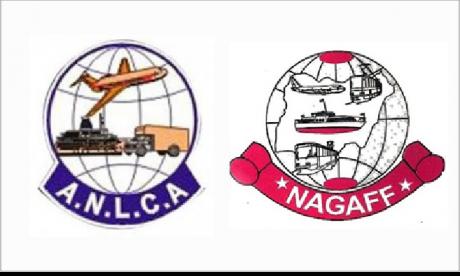
The National Association of Government Approved Freight Forwarders (NAGAFF) has called for the appointment of two representatives from their association and the Association of Nigerian Licensed Customs Agents (ANLCA) to the board of the proposed Nigeria Shipping and Port Economic Regulatory Agency (NISPERA).
This demand was highlighted in a position paper submitted to the National Assembly on May 4, 2024, and signed by NAGAFF’s National President; Chief Tochukwu Ezisi.
NAGAFF’s paper, which was obtained by our correspondent commended the legislative effort to repeal the Nigerian Shipper’s Council Act (Cap N133, LFN, 2004) and replace it with the NISPERA Bill. The association emphasizes the necessity of a dedicated regulatory body to address the economic challenges that have plagued Nigeria’s ports since their concession.
According to NAGAFF, the absence of such a regulatory agency has allowed port concessionaires to dominate and exploit the system to their advantage, leading to economic inefficiencies.
“The post-concession era of Nigerian ports has suffered from significant economic strangulation due to the absence of an Economic Regulatory Agency. Consequently, port concessionaires have been having a field day, stifling economic and port operations for their gain,” the position paper states.
NAGAFF argues that the NISPERA Bill presents a significant opportunity to rectify these long-standing issues and enhance oversight of port activities. The association stated that it supports the establishment of NISPERA as a means to ensure fair competition and efficient operations within the ports and maritime sector. “The support by NAGAFF and the larger freight forwarding community for this legislative initiative reflects our belief that a regulatory agency will help address economic strangulation and promote fair competition within the ports. We anticipate that the agency will regulate the activities of port concessionaires, ensure compliance with standards, and foster a conducive environment for economic growth and development,” NAGAFF asserts.
Despite its overall support, NAGAFF stresses the importance of including freight forwarders in the decision-making process of the new regulatory body. The association demands that at least two freight forwarders from NAGAFF and ANLCA be appointed as Executive Directors, with an additional two freight forwarders serving as part-time Board members.
NAGAFF noted that this representation is deemed essential to ensure that the interests and expertise of the freight forwarding sector are adequately reflected in regulatory decisions.
“We are the central players in the port ecosystem and understand the policies, processes, and practices of each organization in the supply chain. Therefore, our representation on the NISPERA Board is crucial for fair consideration of our industry’s interests,” NAGAFF notes.
Furthermore, NAGAFF firmly opposes the inclusion of freight forwarders under NISPERA’s regulatory jurisdiction, as they are already regulated by the Council for the Regulation of Freight Forwarding in Nigeria (CRFFN) under Act 16 of 2007.
The association argues that dual regulation would lead to unnecessary duplication and inefficiency. “We advocate for the exclusion of Freight Forwarders from NISPERA’s regulatory jurisdiction. Dual oversight will lead to redundancy and regulatory burdens,” NAGAFF explains.
The paper also rejects NISPERA’s authority to set terms, conditions, fees, and licensing for freight forwarders, emphasizing that CRFFN already governs these areas. NAGAFF stresses the importance of respecting the existing regulatory framework to avoid conflicts and inefficiencies.
Additionally, NAGAFF strongly opposes the proposed 3% charge on import and export cargo, arguing that it contradicts the goal of regulating tariffs and rates to prevent arbitrary practices. However, the association endorses the provision empowering NISPERA to establish guidelines on tariffs, rates, and charges, provided there is thorough consultation with stakeholders.
NAGAFF also advocates for a graded penalty system for non-compliance, including warnings, fines, and potential suspensions based on the severity and recurrence of violations. Moreover, the association insists on establishing a mandatory joint committee, comprising NISPERA, freight forwarders, and other stakeholders, to oversee tariff reviews and adjustments to ensure fairness and transparency.















